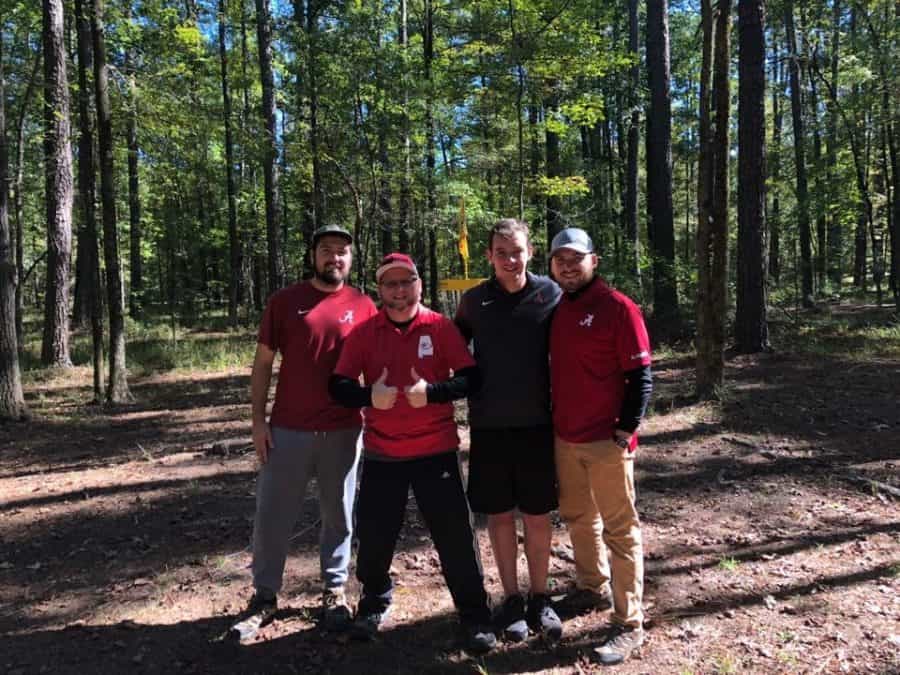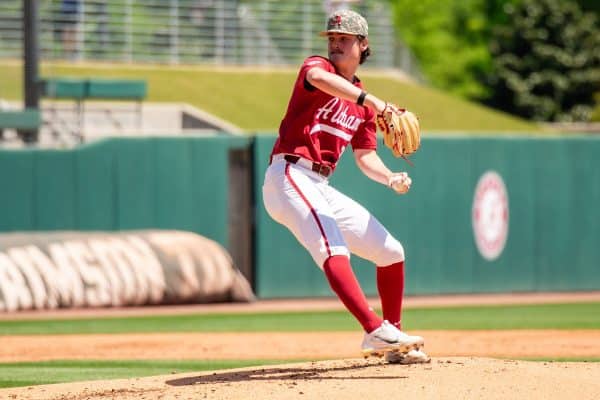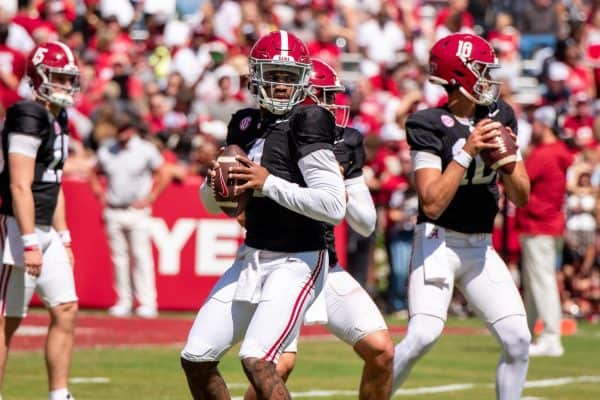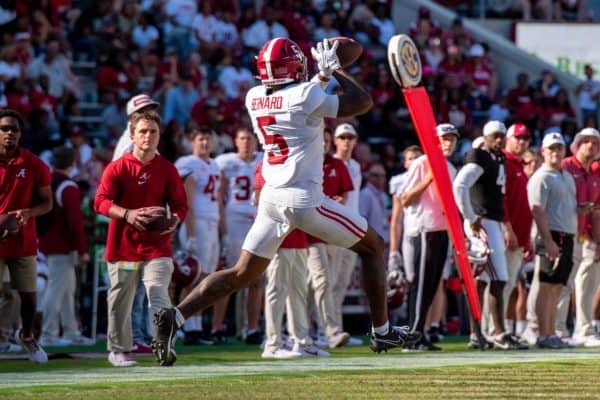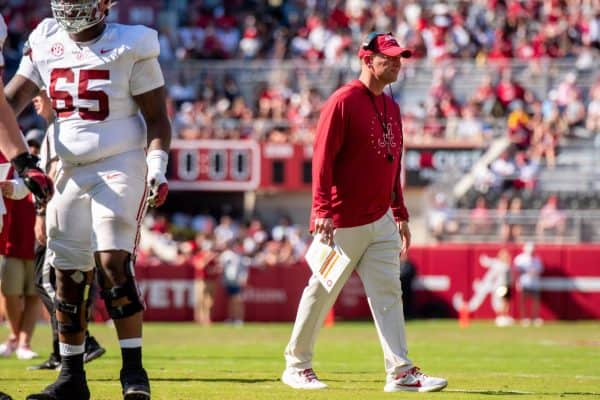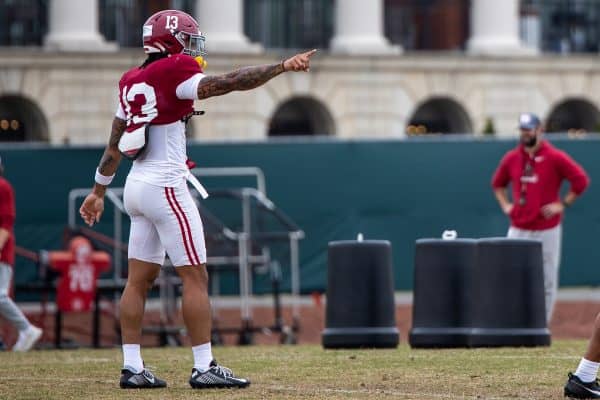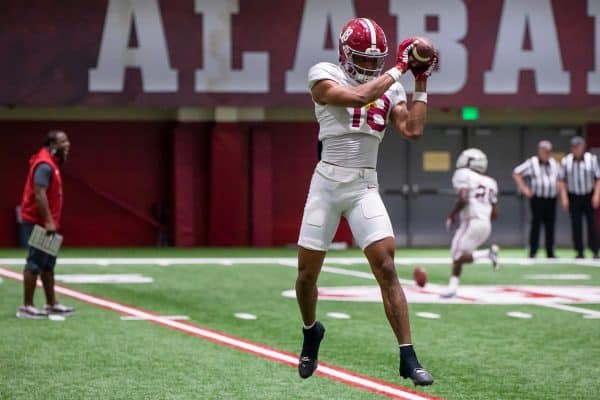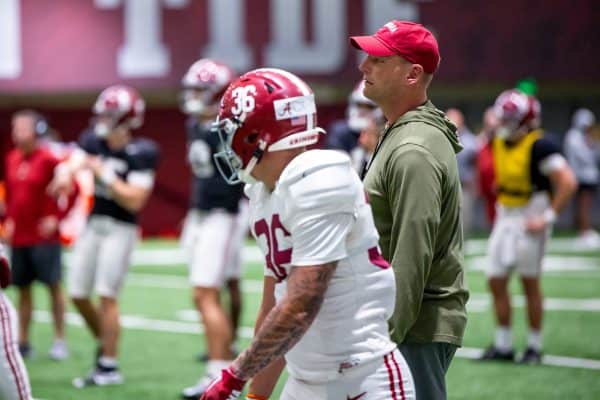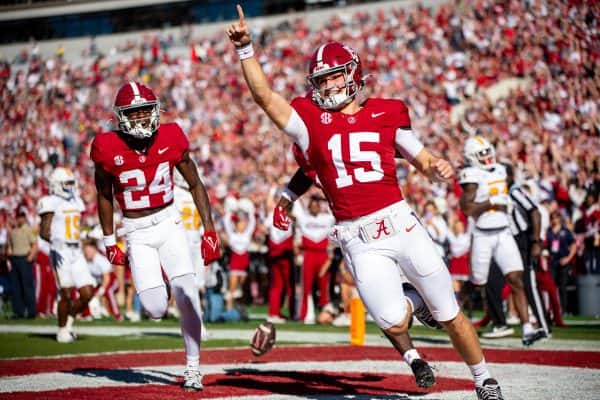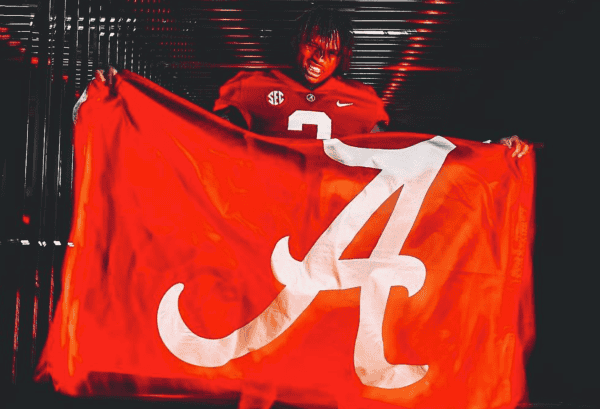Schafer’s love of disc golf breaks barriers
December 6, 2018
Kent Schafer isn’t like his teammates.
Unlike the other members of Alabama’s disc golf team, Schafer prefers going to bed early and rising before the sun. That way, he doesn’t have to compete for a shower during tournaments.
But the differences don’t stop with sleep schedules. Schafer, 40, is about twice the age of his teammates. He’s also deaf.
Schafer began losing hearing in his left ear when he was 3, and he has progressive hearing loss in his right ear.
As he was growing up, Schafer had difficulty communicating with his peers, which made playing traditional team sports challenging.
While attending Gallaudet University in Washington, D.C., one of Schafer’s friends introduced him to disc golf. Disc golf, as its name indicates, is a combination of Frisbee and golf, in which players attempt to land flying discs into baskets. The rules are similar to golf, with most disc golf courses traditionally being 9 or 18 holes.
“One of the biggest barriers for deaf people in socialization is attitude,” Schafer said. “As soon as it requires spoken or auditory needs, deaf people are out. If people are willing to recognize different way of thinking, communication and different people, then it becomes inclusive. On the (disc golf) courses, if I throw this way and they throw that way, the target is still the same and the goal is still the same, so it works out.”
Schafer kept a copy of the national course directory on him, and whenever he had a free weekend or spare time while traveling, he would explore new courses.
“If I was on the way to a workshop or presentation or traveling, I could stop off and find a course and explore a little bit,” Schafer said. “Back before the internet, we relied on Rand McNally atlases and maps. We had the book from the Professional Disc Golfers Association, and so it had about 2,500 courses throughout the United States. I would go through and tick off the list which ones I had gone to.”
Schafer estimates that he has checked off over 300 courses.
During his time at Gallaudet, Schafer and his friends began to meet more and more deaf disc golf players. Schafer even traveled to Maine to play in one of the first deaf disc golf tournaments, which had been organized through a Yahoo group. From there, the deaf disc golf movement continued to grow, culminating in the first ever national tournament in Austin, Texas in 2001. Schafer, of course, was in attendance. And for the next nine years, he competed in the Deaf Disc Golf Association National Championship. Schafer even served as president of the board of the Deaf Disc Golf Association from 2005-2009.
From competing in tournaments across the country to organizing several himself, Schafer formed lasting bonds with hundreds of players.
“I’ve visited and played in 30 to 40 states,” Schafer said. “I’ve met people, hung out, socialized and competed with people all over.”
But Schafer never imagined that he’d be forming friendships in Tuscaloosa, Alabama.
Before coming to Alabama, Schafer had been working as a child psychologist in Wisconsin. During a convention in Pittsburgh at which he was speaking, Schafer was offered the opportunity to come to Tuscaloosa and get his doctorate at Alabama while working in the department of mental health.
Along with his wife, daughter and dog, Schafer brought his passion for disc golf to West Alabama. He joined the Tuscaloosa Disc Golf Club, where he met Frank Connelly and Tanner Schewe. Connelly, a sophomore studying finance, and Schewe, a sophomore majoring in mechanical engineering, lead The University of Alabama’s disc golf team. When they needed an extra player for a tournament last year, they decided to ask Schafer.
Schafer also joined the team at the Southeast Collegiate Open over fall break this year, helping Alabama finish ninth in the tournament and qualify for the National Collegiate Disc Golf Championships in the spring.
Since Connelly and Schewe aren’t familiar with American Sign Language, they usually communicate with Schafer using the notepads on their phones. Schafer is also proficient in reading lips, which makes conversing fairly easy.
“We’ve all been communicating with him pretty well,” Connelly said. “During the round, especially during a tournament round, it’s basically simple hand gestures, so we’re not distracting the other team or anything. He’s really good at reading lips. He can still talk to us and communicate well.”
Having played disc golf all over the country for over 20 years, there’s a good chance Schafer has a friend or two wherever the UA team goes to compete.
“He’s got a huge presence in the deaf disc golf community,” Schewe said. “I remember him telling me that he has a deaf friend in Florida and if we ended up going to Kansas, he’s got a friend there too who can help us. He’s known all over.”
Schafer’s profile and strong play landed him a sponsorship from www.discgolf.com, making him the first deaf person to be sponsored by a disc golf company.
“That was really big in the deaf community,” Schafer said. “It helped me gain a bit of notoriety in a way.”
According to Shafer, his best days of disc golf are behind him, but he still loves to escape for a weekend and compete with his teammates.
“My prime is gone,” Schafer said. “That went away a long time ago. I’m just a grizzled old vet now. For me, I try to limit my mistakes, and I try to have a strong putting game. I’ve been able to achieve good scores. That’s pretty good for an old guy to keep up with all of these young guys.”

